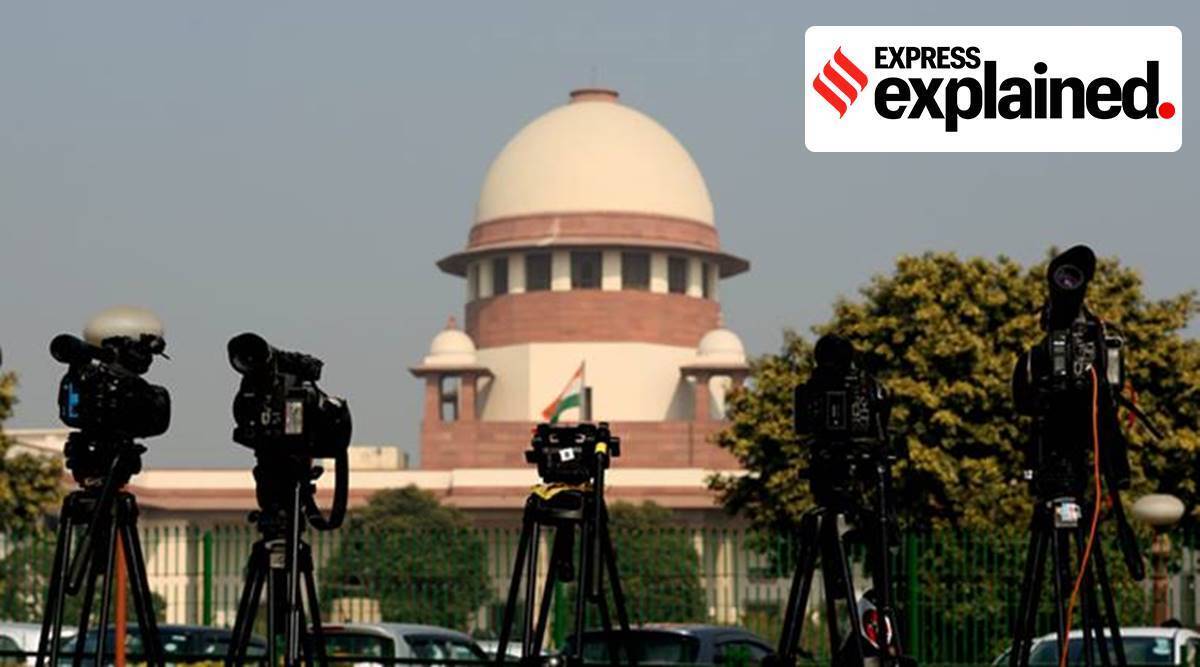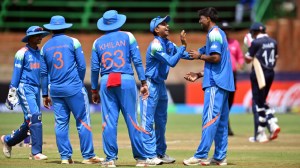How the mandatory reporting provision under POCSO works
What do Sections 19 and 21 of POCSO say, on the mandatory reporting of any apprehensions of crimes being committed against minors? How have courts interpreted it? We explain.
 The Supreme Court of India (Express Photo/File)
The Supreme Court of India (Express Photo/File) Failure to report sexual crimes against minors is a bailable offence, the Himachal Pradesh High Court recently ruled.
What the judge ruled
A single-judge bench of Justice Rakesh Kainthla allowed pre-arrest bail to a hotel manager accused of failing to report an offence committed against a minor, as mandated by Section 21 of the Protection of Children from Sexual Offences (POCSO) Act. He said that since the Act is silent on whether the offence is bailable or not, the nature of the offence must “be determined with reference to the Code of Criminal Procedure.”
The classification of offences under the CrPC “clearly” states that offences punishable with imprisonment of less than three years are bailable and non-cognizable. Section 21 of the POCSO Act prescribes imprisonment of 6 months to a year — thus making it a bailable offence.
The case
In the present case, the main accused raped and recorded a video of a minor schoolgirl in a hotel in September last year. He was booked by the police under Sections 376 (Rape) and 506 (Criminal Intimidation) of the Indian Penal Code, as well as under Sections 6 and 21 of the POCSO Act, which punish aggravated penetrative sexual assault and failure to report sexual crimes against children.
Moreover, the FIR also named the manager of the hotel in which the offence was committed, owing to the mandatory reporting provision under the POCSO Act.
POCSO and mandatory reporting
Section 19 of the POCSO states that anyone having “apprehension” that an offence under POCSO is likely to be committed, or knowledge that such an offence has been committed, “shall” provide such information to the Special Juvenile Police Unit (SJPU) or the police. The term “any person” also includes a child who may report an offence.
This reporting provision becomes binding due to Section 21 of the POCSO Act, which prescribes punishment for failing to report the commission of an offence under Section 19. Imprisonment of six months to one year, or a fine, or both is prescribed under Section 21.
It must be noted, however, that children cannot be held liable for failing to report the commission of a sexual offence. Similarly, children making false complaints or giving false information are also exempt from punishment under Section 22 of the Act.
What the has SC ruled
In a series of decisions, the Supreme Court has held that failure to report such cases amounts to a serious crime.
In 2013, a two-judge bench of the SC in Shankar Kisanrao Khade vs. State of Maharashtra ruled that “the non-reporting of the crime by anybody, after having come to know that a minor child below the age of 18 years was subjected to any sexual assault, is a serious crime.”
The apex court, in this ruling, put an even greater obligation on certain categories of professionals, such as medical practitioners and those in charge of educational institutions to report cases of child sexual abuse to the nearest Juvenile Justice Board, or Special Juvenile Police Unit.
This created a conundrum for medical practitioners, since their professional ethics require them to maintain the confidentiality of their clients.
Striking a balance
Led by Chief Justice DY Chandrachud, a three-judge SC bench in September 2022 tried to strike a balance between the mandatory reporting provision under POCSO and the confidentiality provision under the Medical Termination of Pregnancy Act, 1971.
In X vs The Principal Secretary, Health and Family Welfare Department, Govt of NCT of Delhi, the bench pointed to cases where minors might approach a Registered Medical Practitioner (RMP) for a medical termination of pregnancy arising out of consensual sexual activity. It recognised that minors or their guardians might be wary of the mandatory-reporting requirement, to avoid entangling themselves with the legal process, and thus approach an unqualified doctor for abortion instead.
The court said that by insisting on disclosing the minor’s name in the report under Section 19(1) of POCSO, minors may be reluctant to seek out RMPs for safe termination of their pregnancies under the MTP Act.
Pointing to Rule 3B(b) of the Medical Termination of Pregnancy Rules 2003, as amended on October 12, 2021, which allows minors to terminate their pregnancy up to 24 weeks, the court said that to ensure its benefit to minors engaging in consensual activity, “it is necessary to harmoniously read both the POCSO Act and the MTP Act”.
For the limited purposes of providing medical termination of pregnancy under the MTP Act, the court said that the registered medical practitioner, only on request of the minor and their guardians, can be exempted from disclosing the minor’s identity and personal details under Section 19(1) of the POCSO Act or in any criminal proceedings that may ensue from the RMP’s report under Section 19(1).
“Such an interpretation would prevent any conflict between the statutory obligation of the RMP to mandatorily report the offence under the POCSO Act and the rights of privacy and reproductive autonomy of the minor under Article 21 of the Constitution,” the court said.
- 01
- 02
- 03
- 04
- 05






































